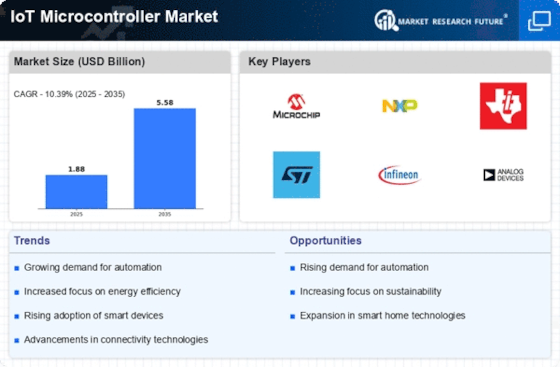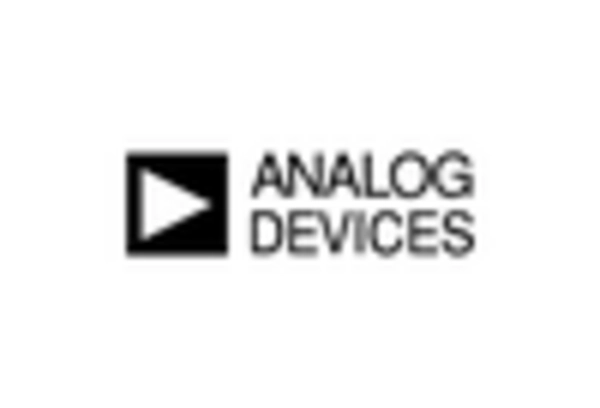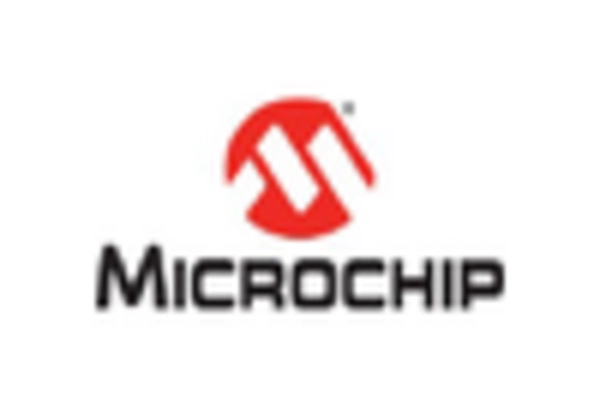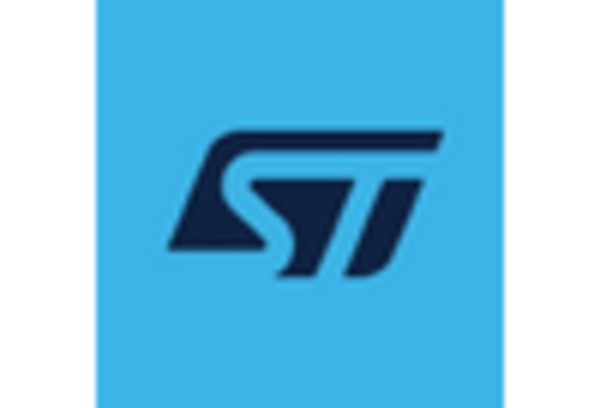Market Share
IoT Microcontroller Market Share Analysis
The success of players in the highly competitive IoT microcontroller market is largely dependent on their market share positioning tactics. Differentiation is a crucial tactic used by firms to differentiate their microcontrollers by providing special features and functionalities. This might incorporate cutting-edge security measures, energy-efficient designs, or sophisticated processing capabilities. Companies aim to carve out a niche and draw in a certain market segment that values the distinctive qualities of their microcontrollers by offering something different. Cost leadership is a popular tactic used by manufacturers that aim to outperform their rivals in the production of IoT microcontrollers. This strategy is especially useful in areas where there is a great need for affordable solutions, such those requiring a significant number of microcontrollers. Achieving economies of scale and streamlining manufacturing procedures allows businesses to establish themselves as industry leaders in affordability and take a sizable portion of the market. Market leaders use constant innovation as a flexible tactic to hold onto and grow their market share. This entails a dedication to continuous research and development, leading to the regular release of updated and new products. Organizations may meet changing client demands and beat rivals by being on the cutting edge of technology. Innovation promotes long-term market share growth by drawing in new clients while also aiding in the retention of current ones. In the IoT microcontroller industry, market share positioning requires both reputation management and brand promotion. Businesses make investments to create compelling brand identities that appeal to consumers. A strong brand reputation that is based on dependability, effectiveness, and customer satisfaction may have a significant impact on consumers' decisions to buy. In the face of escalating competition, a strong reputation aids in both attracting new clients and keeping existing ones.

















Leave a Comment